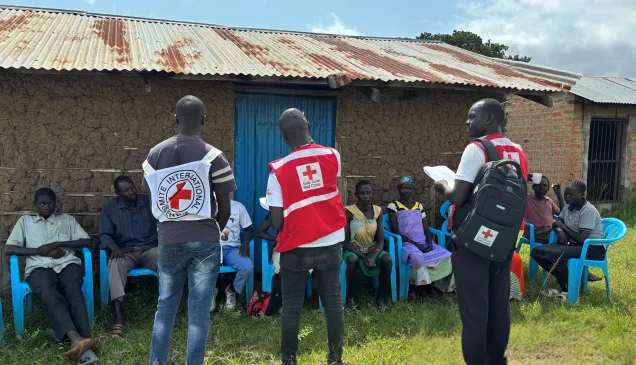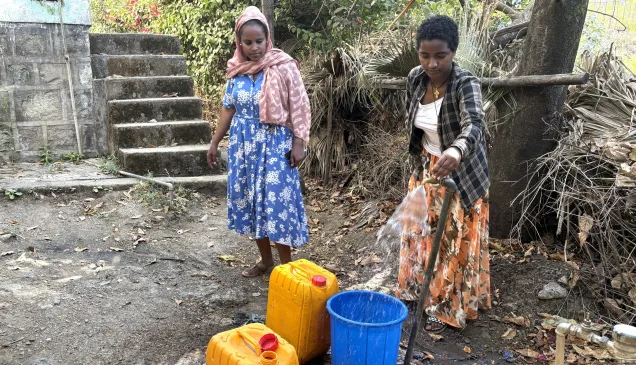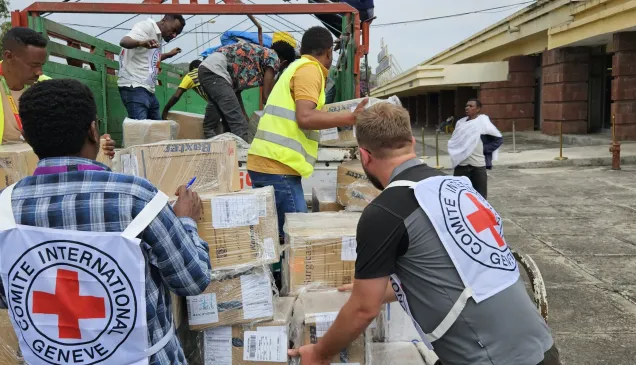All along our route, from Woldiya to Kobo, the bright colors worn by hundreds of students paint the roadside in blues, purples, reds and greens, as if to draw attention away from the arid fields.
ICRC seed and cash assistance throughout Ethiopia
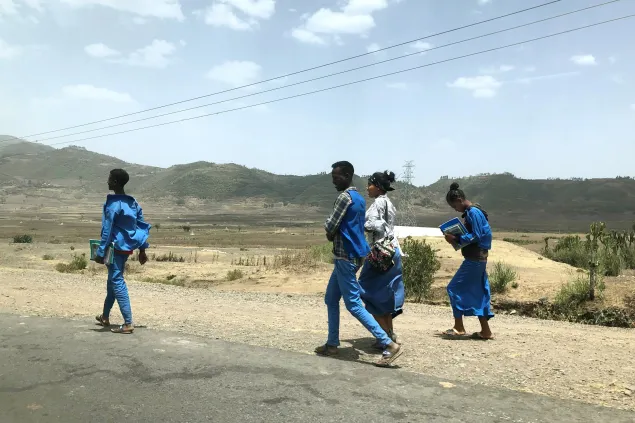
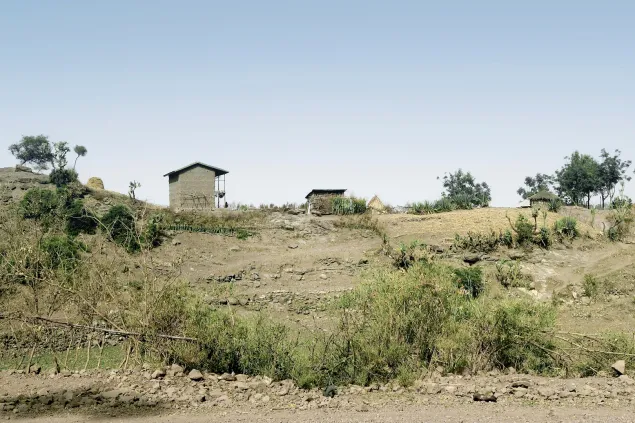
Many farmers returned to their land after fleeing armed violence, only to find that years of hard work had been wiped out.
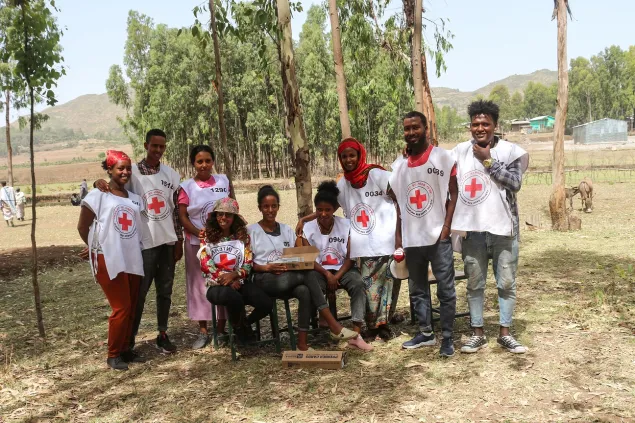
Ethiopian Red Cross volunteers are all smiles, ready for a new day of the ICRC seed and cash distribution in the Amhara region.
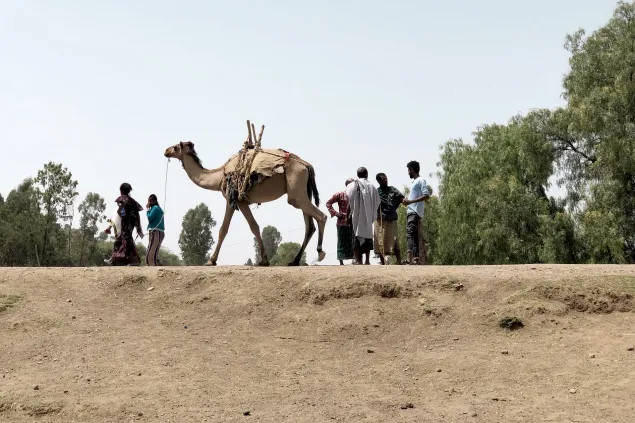
Residents have brought all the necessary means of transport to carry the bags of seeds allocated to them by the ICRC.
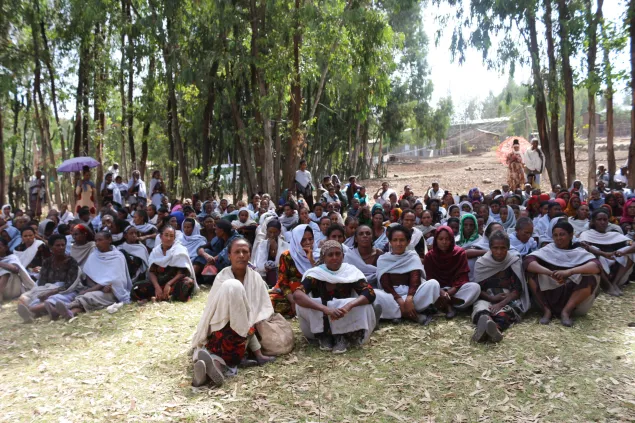
Pre-registered community members gather in the shade in Raya, on the heights of Kobo, ready to receive their registration cards.
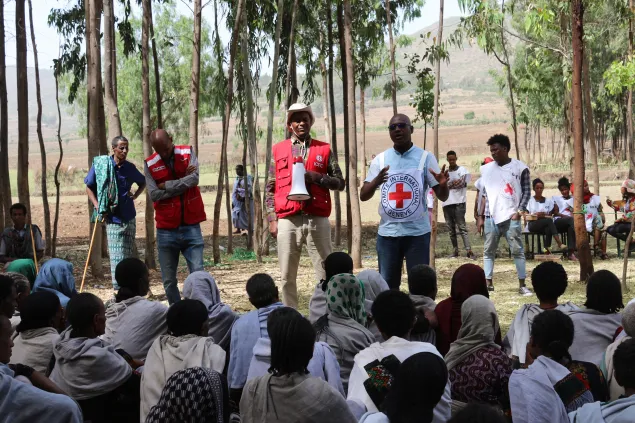
A few explanations by the ICRC staff about eligibility requirements and the distribution process are essential before opening the floor to questions.
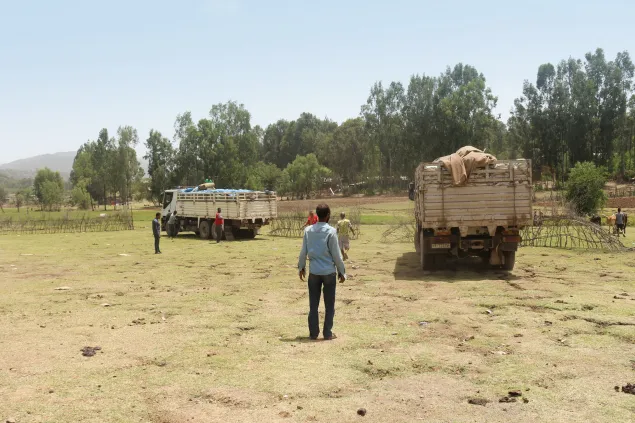
The arrival of the trucks can be an emotional moment.
Their journey has been long, sometimes challenging, and their load is so valuable for families. These two trucks carry over 2,000 bags of hope.
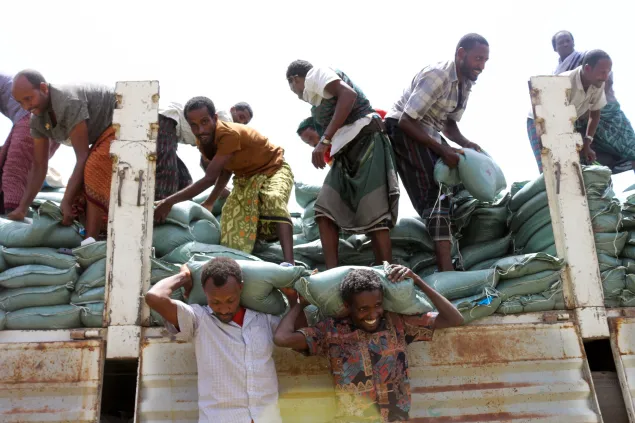
Residents, local authorities, Red Cross volunteers and ICRC staff work with extraordinary energy and excitement to unload and stack the seeds that will reach 1,300 households.
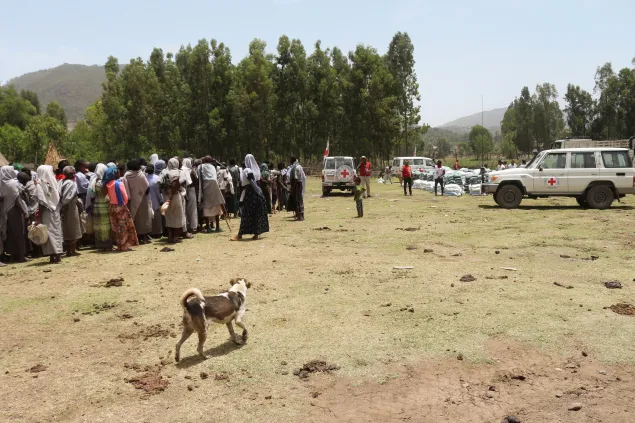
The beneficiaries get in line to present their card and collect their bag of seeds.
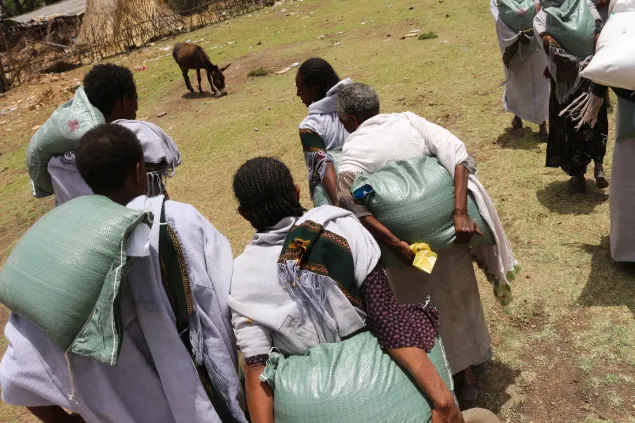
Time to gather for seed scooping in a nearby field.
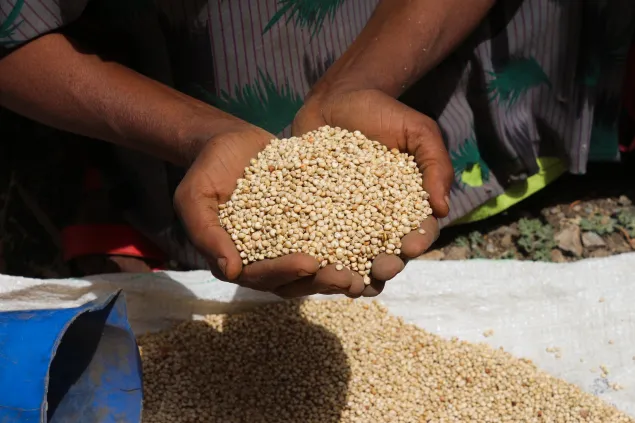
Each eligible household receives high-quality seed of two different crops.
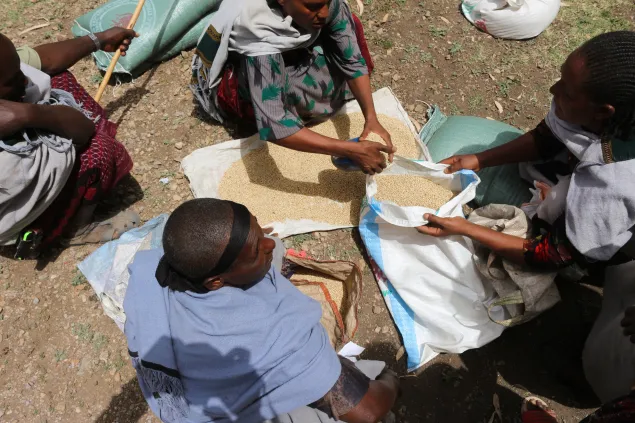
Scooping. Each bag of sorghum must be shared among five households. The splitting of the seed is a precision task taken on by the women.
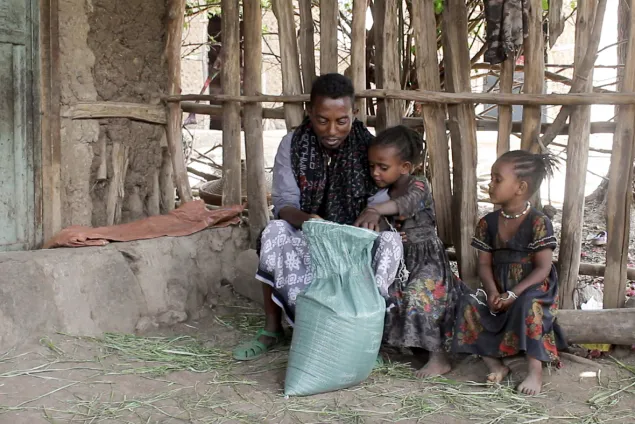
"Life after the armed conflict became very difficult," said Abebe Wudye Degu. "I was given some good seed. With this aid, we will be able to raise our six children."
The return of displaced rural communities to their lands after a decrease in armed violence represents both hope and challenge. Years of past labor to make their crops grow and their farms prosper have been shattered. Everything needs to be started again.
As part of its nationwide assistance operations, the International Committee of the Red Cross (ICRC) is providing support to farmers in collaboration with the Ethiopian Red Cross Society (ERCS) and local authorities.
By the end of 2022, more than 65,000 households in Amhara, Oromia, Somali and Tigray will have received assistance from the ICRC with seeds and cash for agricultural supplies such as fertilizer and tools. The total amount of seed distributed in 2022 comes to approximately 1,900 metric tons and is composed of sorghum, maize, teff, wheat and haricot beans.
"No one here was expecting this support. Thanks to the cash assistance, we can now buy more seeds, pesticides and other inputs. With God's help and if the rain comes, we will succeed," said Abebe Wudye Degu, farmer and father of six children.

